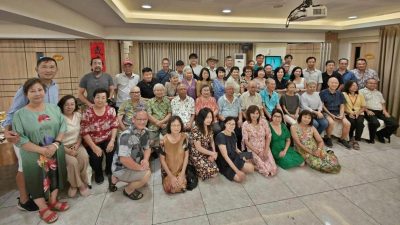
By Leon Foong
SOCAR Mobility Asia warmly welcomes the government's commitment to strengthening and widening sustainability-related financing in the upcoming Budget 2022.
As Minister of Finance Tengku Datuk Seri Zafrul Abdul Aziz recently said, a whole-of-nation approach is crucial in developing key policies for sustainable development.
As a company committed to expanding access to mobility options and also a believer that transportation can be fully carbon-neutral in the future, SOCAR is firmly committed to and highly supportive of policies and incentives that encourage low-carbon mobility and investments into the sustainable infrastructure that supports green transportation systems in a vibrant green economy.
In particular, we at SOCAR have long believed that private-public partnerships will be key in accelerating the switch from fossil-fuel powered vehicles to electric vehicles, including driving investment in the battery and charging industries.
We urge the Ministry of Finance, through the Sustainable Financing Roadmap, to incentivize the automotive sector and consumers in Malaysia to invest in the massive growth potential of EVs – from the production of EVs, its chargers and batteries, to the creation of a vibrant ecosystem of support services for EV users and even the recycling and repurposing of retired EV batteries for secondary use.
With TNB's plans for a renewable energy composition target of 31% by 2025 and 40% by 2035, we believe that mobility players and government stakeholders will also need to play their parts in ensuring that our vehicles can tap into this greener "grid of the future".
In driving private-public partnerships, it is also crucial for private enterprises and relevant ministries and agencies to come together to strategize efforts when it comes to policy standardization.
We look forward to working with the Ministry of International Trade and Industry and its agency, the Malaysia Automotive Robotics and IoT Institute, as well as the Ministry of Environment and Water and its agency, the Malaysian Green Technology and Climate Change Center, in addition to the Ministry of Finance.
At SOCAR, we are keen to contribute our resources and expertise towards this collaborative effort.
Learning from success stories in EV adoption globally is also key. For example, in Liuzhou, China, a localized focus on the requirements of residents has proven that smaller and more affordable 2-seaters like the Baojun E100 can be a huge catalyst for the electrification of fleets.
When it comes to incentivizing the switch to EVs and expanding availability of charging infrastructure, the announcement of the Low Carbon Mobility Blueprint 2021-2030 earlier this year was a highly positive and key step and we look forward to this being formalized by the cabinet.
While the exemption of import duties for fully electric vehicles is most helpful, the affordability gap between ICE vehicles and EVs is expected to persist beyond that and there are also challenges when it comes to the availability of fast chargers.
We are hopeful that the government can work with industry participants to create an Electric Vehicle digital one-stop shop where all Malaysians can easily understand the total cost of ownership savings from EVs, find their closest fast charging points, pay for charging and claim the tax benefits that come with buying an electric vehicle.
For SOCAR, our flexible distributed mobility option can make driving an EV more affordable and seamless, thus not only reducing the number of cars on our roads but also cutting emissions from cars that are on the roads.
Our technology is able to ensure seamless sharing while giving SOCAR users full visibility on the charge levels of each car that they are booking.
Our people-to-people car sharing platform TREVO further enables EV owners to share the financial burden of buying an EV by listing their cars and sharing their charging stations with the public.
Having a comprehensive pool of demand and usage data is also pivotal for the successful expansion of charging infrastructure.
Incentives have been announced to encourage the private sector to build infrastructure for the national fast charging network under the Green Income Tax Exemption (GITE)4, but having the correct data to identify the right locations for installing appropriate charging points to cater to both city-based and long-distance driving, and to have efficient load balancing across strategic locations, is a must.
For example, we understand that drivers are a lot more likely to spend 30 minutes in a supermarket than 30 minutes in a petrol station and this should determine the type of chargers to be installed.
We have also observed that most SOCAR users do not drive more than 60km per booking.
In this, mobility service providers such as SOCAR and TREVO have a role to play in contributing data as a key resource for improving the EV driving experience and subsequently in promoting EV adoption.
There is undoubtedly still much work to be done to achieve green transportation and sustainable development on the whole, but at SOCAR Mobility Asia, we are firmly committed to doing our part to support the government's green initiatives to ensure we create an electric vehicle ecosystem that meets the requirements of our nation's driver community.
(Leon Foong is Group CEO of SOCAR Mobility Asia.)
ADVERTISEMENT
ADVERTISEMENT


































